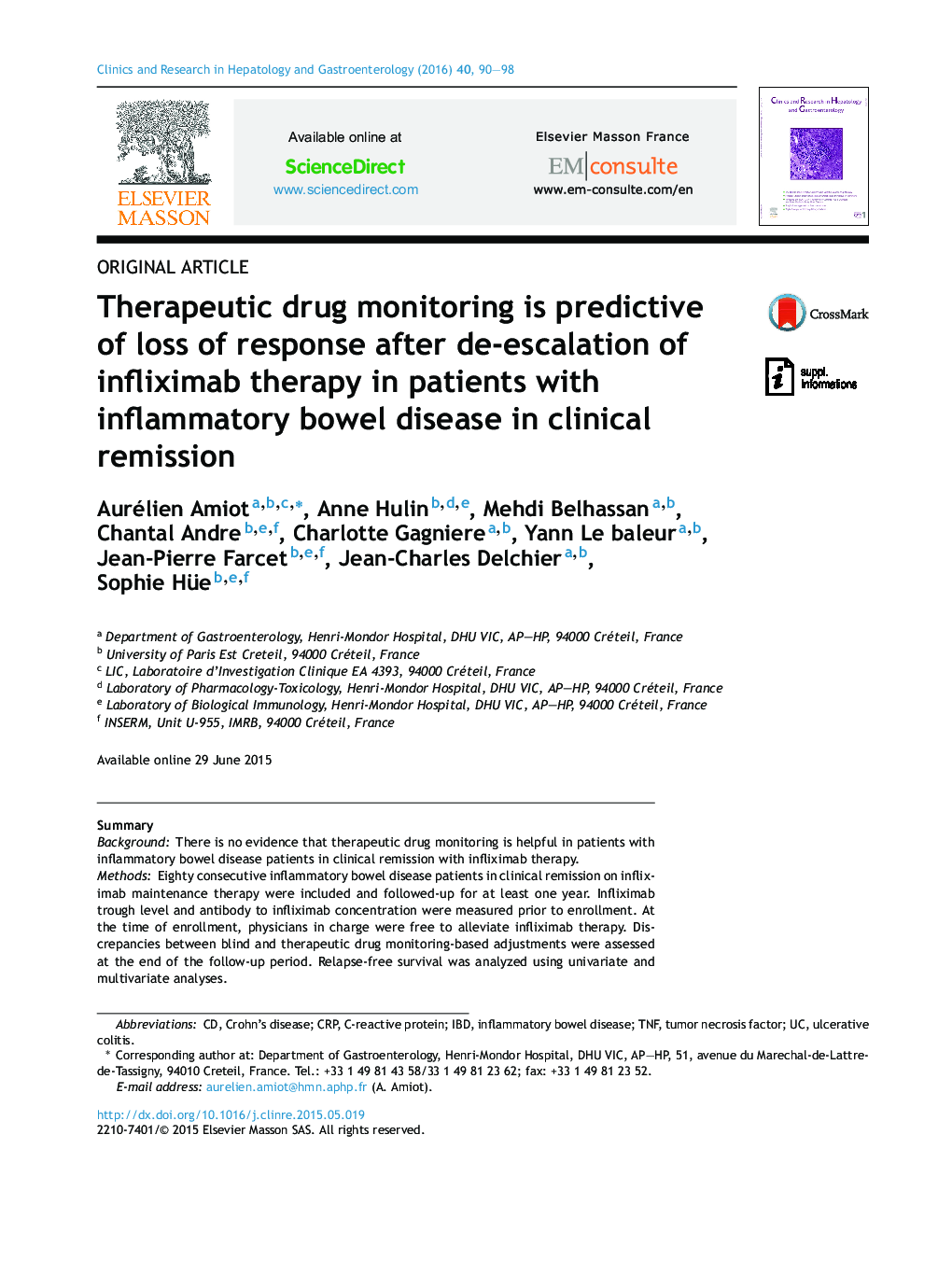| Article ID | Journal | Published Year | Pages | File Type |
|---|---|---|---|---|
| 3286123 | Clinics and Research in Hepatology and Gastroenterology | 2016 | 9 Pages |
SummaryBackgroundThere is no evidence that therapeutic drug monitoring is helpful in patients with inflammatory bowel disease patients in clinical remission with infliximab therapy.MethodsEighty consecutive inflammatory bowel disease patients in clinical remission on infliximab maintenance therapy were included and followed-up for at least one year. Infliximab trough level and antibody to infliximab concentration were measured prior to enrollment. At the time of enrollment, physicians in charge were free to alleviate infliximab therapy. Discrepancies between blind and therapeutic drug monitoring-based adjustments were assessed at the end of the follow-up period. Relapse-free survival was analyzed using univariate and multivariate analyses.ResultsThe mean infliximab trough level was 3.1 μg/mL. Antibody to infliximab was found in 15 (19%) patients. At the end of the follow-up period, 18 (22.5%) patients experienced a relapse. The 3, 6, 9 and 12-month relapse-free rates were 98%, 87%, 86% and 80%, respectively. In our multivariate analysis, relapse-free survival was negatively associated with discrepancies between therapeutic drug monitoring-based and blind adjustments of infliximab therapy, absence of concomitant immunomodulator, the absence of mucosal healing, prior use of infliximab, infliximab therapy duration > 2 years and C-reactive protein levels > 5 mg/L at the time of enrollment.ConclusionIn patients with inflammatory bowel disease in clinical remission on infliximab therapy, de-escalation of infliximab therapy should be considered based on therapeutic drug monitoring rather than according to symptoms and CRP.
